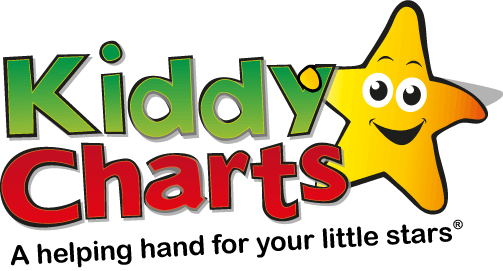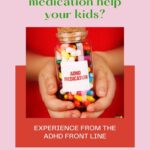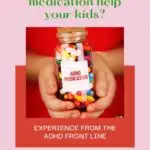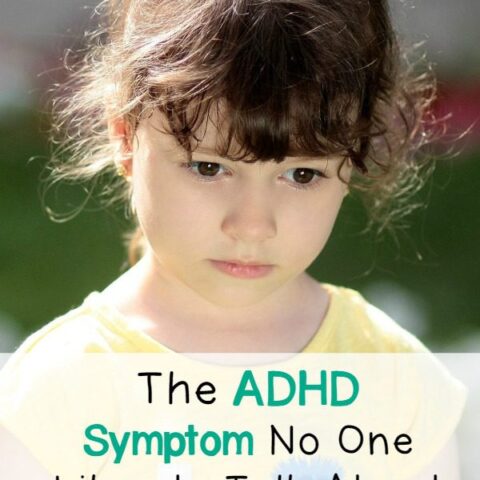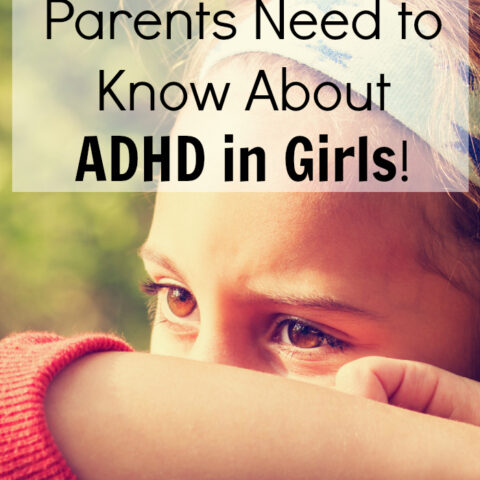This is another guest article from Sarah Templeton, who has ADHD herself, and is also the owner of the Headstuff ADHD Therapy coaching and counselling organisation. This is not medical advice though, and any decisions regarding medication should be taken with a medical professional. The information here is based on her experience as a coach, counsellor, and having ADHD herself. This ADHD medication guide is designed to give you a perspective on what is available in co-operation with your health team, and relevant professionals.


Before I was diagnosed with ADHD in 2015 and became a counsellor who specialises in working with children, adolescents and adults with ADHD, I could quite understand when I heard people say they had chosen not to medicate their child and taken different routes to helping them with their ADHD issues.
Eight years later, following a ton of research and working with hundreds of children and teenagers newly diagnosed and their ADHD Psychiatrists, I have completely reversed my opinion on this.
So I’m going to give you both the reasons why people choose not to medicate, and in my own personal opinion, the reason why it is detrimental to the child not to at least attempt getting them on some sort of ADHD medication.
Thoughts on ADHD medication


Firstly, when your child is diagnosed with ADHD, the paediatrician will often give you the choice as to whether to medicate or not.
I completely understand that looking at your beautifully formed, perfect tiny five year old (or slightly bigger 15-year old) how you wouldn’t want to be putting medication into their body every day.
I 100% understand this.
So a lot of parents actually look for alternatives before even thinking about putting their child on ADHD medication.
I can, hand on heart, tell you that none of those alternatives are going to touch the sides when it comes to managing your child’s ADHD. Some of the alternatives are vigorous exercise every day, vitamins and supplements, counselling and therapy and a few other slightly less conventional ones like cranial therapy and homeopathy. Some of these will definitely help, but what they aren’t going to do is replace what is missing in your child’s ADHD brain.
Medicating means replacing “what is missing”


‘Replace what is missing’ is exactly what ADHD medication does.
ADHD medication is known as the most efficacious in the world for anything physiological or psychological. The reason for this is it is the only medication that replaces something missing in the brain. Put simply for the non-scientific of us, ADHD people are born without enough dopamine. ADHD medication purely replaces that dopamine and that can make the world of difference for your child.
When you think about how many traits an ADHD child is dealing with 24 hours a day, now imagine they have the correct medication put into their brain and all those traits pretty much evaporate.
Why wouldn’t you want to help your child in that way?
ADHD medication guide: What can it do for your child


Here are some of the key areas that medication supports children with:
- Helping them to focus and concentrate in school and at home,
- Help them retain information. How helpful is this going to be when they are studying for GCSE, A-levels and degrees? They will now be able to revise and hold the information in their head,
- It will stop them becoming distracted and allow them to concentrate on whatever they need to,
- It will stop the internal motor, meaning they won’t be constantly wanting something new and something different. It will allow them to settle in their head,
- If they have any sort of compulsive problem like eating, then this will be eradicated,
- It will curtail their impulsivity meaning they won’t get into trouble so much in class for shouting things out. They also won’t impulsively say things that upset their friends and lose them friendships. And as they get older will protect them from getting into trouble with the law,
- They will, for the first time in their life, be able to think of the consequences. This is useful when they are younger, but critical for when they hit their teens and puberty. Not being able to think of the consequence is what lands a lot of ADHD kids up in trouble,
- It will actually allow them to feel that ‘everything is enough’ and to be able to enjoy their life. One 8 year old on being on medication for a month, told his father that for the first time in his life he knew what it was to feel happy. Until that moment, he had been discontent and and was constantly thinking that there was something better he was missing out on,
- It will help children who are day dreamers, away with the fairies and in their own world to be present in the room. This will be hugely helpful for their education and friendships, and
- Perhaps, most importantly of all, it lifts your child’s mood. Until you take ADHD medication, you will not have known that your racing brain, constant thoughts and underlying anxiety have caused you to feel on edge – all the time. ADHD medication clears your head and allows you to feel a beautiful calm relaxation, free from overthinking, ruminating and worry.
And that really IS just for starters. ADHD medication can eradicate procrastination, motivate people who struggle to get going, and completely change lives.
Now perhaps you can see why I say it’s always sensible to at least try ADHD medication. I totally accept that there are some children who don’t respond well to it, or for medical reasons cannot take it.
These are a minority though, so if your child is able to try ADHD medication, I strongly suggest they do.
Don’t give up at the first hurdle. There are a huge variety of stimulant and non-stimulant medications. You might therefore need to try anything from two or more to find the right one for your child.
We hope you have found this useful – do check out the other articles we have on ADHD, including there:
Articles on ADHD from KiddyCharts Part 1
Here are the first in our series of articles to help and support parents and teachers to understand ADHD in kids
ADHD comorbidity: What co-existing conditions you might need to look out for
Our first article in the series looks at the ADHD co-existing conditions.
Emotional dysregulation in ADHD kids: What is it and how to handle it
The second article from Sarah Templeton explains what emotional dysregulation is in ADHD, and how to deal with it.
What is rejection sensitive dysphoria and how does RSD ADHD appear in kids?
The third article covering ADHD focuses on RSD, or Rejection Sensitive Dysphoria. What is it, and how does it manifest in ADHD?
ADHD and procrastination: Why adults and kids do it and how to stop them?
Procrastination is a real issue with ADHD - what and why does it happen and what can you do about it.
Remember the books that Sarah has written too – these are definitely worth checking out as well:
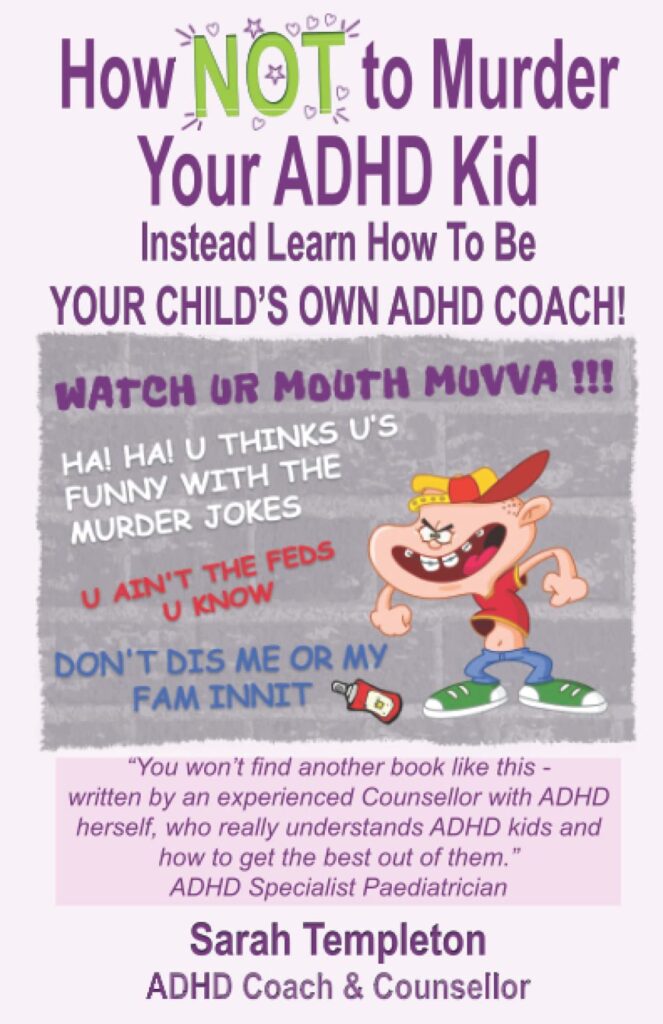
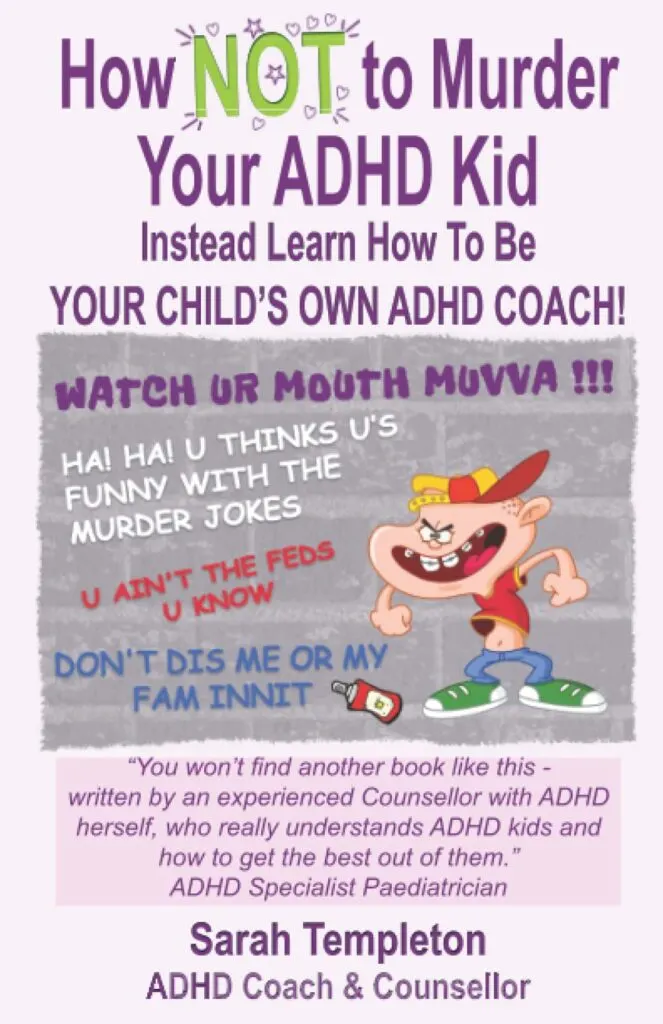
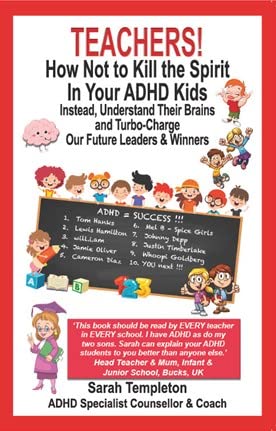
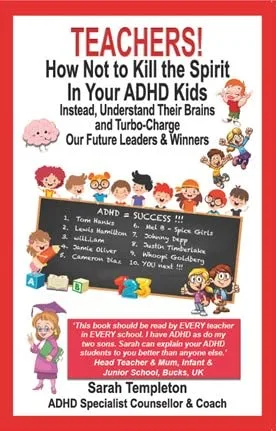
Here are some other articles on ADHD from sites other than ours:
Articles on ADHD from other sites
Here are some more articles from some other kid-related sites that also cover ADHD
Top Tips For Caring For Your Child Diagnosed With ADHD
Some tips and ideas for helping your child with ADHD.
The Surprising Link Between ADHD and Anxiety
As we have said, social anxiety is often linked to ADHD; here is another article looking at that link.
10 Things Other Parents Need to Know About ADHD in Girls
ADHD preents very differently between boys and girls. Here are some things that other parents should know about it.
Feel free to sign up to our newsletter. We will send you a weekly reminder of what we have shared with our readers:
Thanks for coming to see us again,
Helen


